A model for change: Belén Market
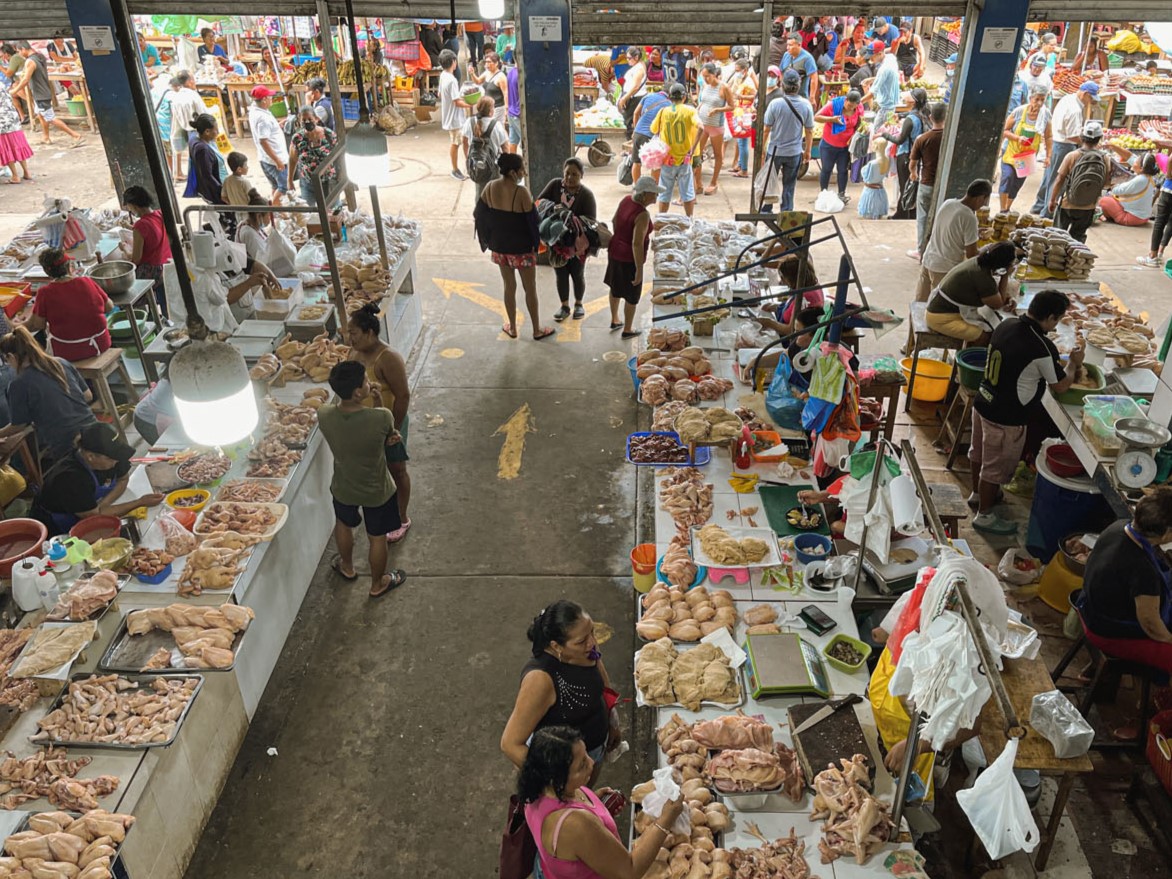
Belén market, Peru. Credit - Neil D’Cruze.
Advancing gender equality and sustainability at Belén Market, Peru
Belén Market in Iquitos, Peru, is a bustling hub of economic activity, renowned for its vibrant culture but also infamous for its role in the illegal wildlife trade (IWT). This trade impacts more than 200 species, with a significant portion threatened by extinction. For the vendors involved, IWT offers a source of income in a region where poverty remains pervasive - yet it also comes at the cost of animal welfare, public health, and sustainable livelihoods.
In partnership with local stakeholders, our project is working to create transformative change by engaging vendors and offering sustainable alternatives to IWT. With a key focus on Gender Equality and Social Inclusion (GESI), we are building trust, increasing awareness, and empowering communities to transition toward legal, humane livelihoods.
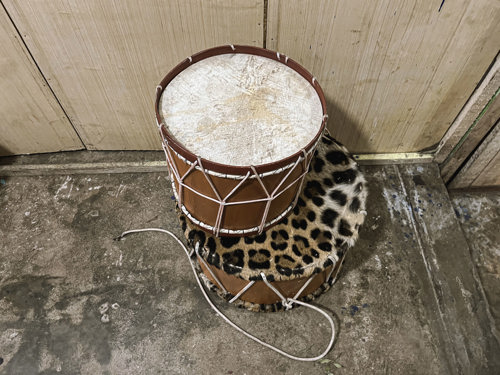
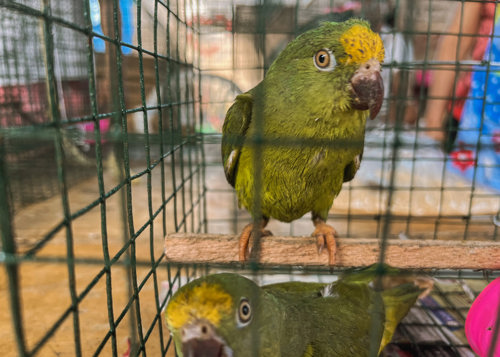
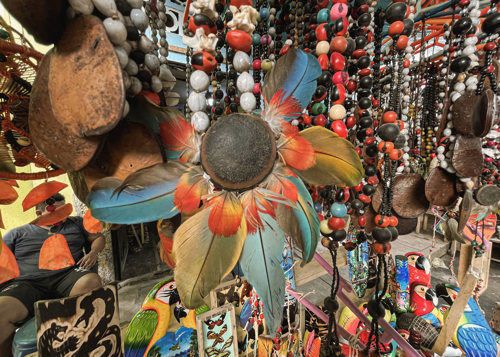
The role of women in IWT and community transformation
Women are key players in the vendor and consumer transactions at Belén Market. Research conducted early in the project revealed that a significant proportion of wildlife product vendors and buyers are female, underscoring their influential role in shaping demand. Recognising this dynamic, we ensured that women’s perspectives and participation were central to our approach.
This Gender Sensitive focus is not only a strategic necessity but also a moral imperative. By engaging women, who are disproportionately affected by the economic pressures that drive involvement in IWT, we aim to create equitable opportunities and foster long-term social and economic resilience in the community.
Collaborative engagement: Listening and learning
A Gender Sensitive approach was applied from the very outset of our project design, as our field team included five female consultants who lead engagement with members of the local community. Our mixed methods approach began with a detailed vendor survey involving over 130 participants, 62% of whom were women. This survey provided invaluable insights into vendor practices, motivations, and barriers to transitioning away from IWT. Importantly, it also helped build trust within the vendor community by creating a platform for their voices to be heard.
Building on this foundation, we hosted a workshop tailored to the needs and realities of vendors, many of whom juggle long working hours with caregiving responsibilities. Recognising these challenges, the workshop was designed to be family-friendly, with vendors bringing children or representing family members when necessary. This inclusivity enabled 16 vendors, more than half of them women, to explore non-wildlife-based livelihoods, such as selling regional dishes, agricultural products, and eco-friendly handicrafts.
The response was overwhelmingly positive. All participants expressed interest in further training and support, and over half were open to transitioning to alternative livelihoods. As one of the vendors shared with us at the end of the workshop, “I might have been doing this for a long time, it is what I was taught and what I needed to do to sustain my family. But maybe, I have an opportunity for change with this process and if it is for the benefit of the people and the planet, then I can do it with pleasure.”
Empowering change through inclusion and representation
In addition to engaging women, our project has sought to empower marginalised groups by amplifying their voices in policymaking processes. We collaborated with key government stakeholders at local and national levels to ensure that vendor perspectives are integrated into discussions about IWT reduction strategies and sustainable development initiatives.
A particularly impactful outcome has been the creation of a preliminary toolkit for vendors. Developed collaboratively and validated by a representative sample of participants, this toolkit offers initial practical, accessible guidance for transitioning to sustainable livelihoods. Two versions were produced: a concise flyer using simplified language for vendors and a more detailed guide for government and organisational stakeholders.
Visual communications have also been tailored to reflect the reality of Belén Market. For instance, women are prominently depicted in our flyers and materials, reinforcing their role as leaders of change within the community.
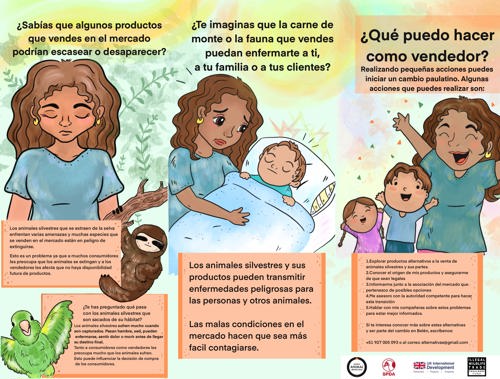
Lessons learned: Trust, accessibility, and participation
Several key lessons have emerged from our efforts:
Trust is foundational: Engaging vendors in an open and respectful manner has been critical to overcoming initial scepticism. Transparency and collaboration have fostered a sense of ownership and shared purpose.
Accessibility matters: By considering barriers such as education levels, caregiving responsibilities, and long working hours, we designed activities and materials that are genuinely inclusive.
Gender Sensitive strategies drive impact: Centring women in our approach has not only increased participation but also led to more equitable outcomes, benefiting the broader community.
Participation enriches solutions: Involving vendors directly in the creation of recommendations and materials has ensured that our strategies are practical, relevant, and widely accepted. Focusing on women also enabled us to tap into generational knowledge about income generation at the market which had been passed down to them by their mothers and grandmothers.
Moving forward: Sustaining momentum
While much progress has been made, our journey is far from over. As we seek to transition from the evidence-gathering phase to full-scale implementation, our focus remains on sustaining the momentum generated by our early successes.
Future initiatives will include further capacity-building workshops, enhanced policy engagement, and continued support for vendors to help them to transition to alternative livelihoods. By working closely with local communities and stakeholders, we aim to significantly reduce IWT at Belén Market and inspire similar efforts across Peru and the Amazon region.
A model for change
Our project demonstrates the potential transformative power of inclusive, community-led approaches to conservation and development. By empowering women and marginalised groups, fostering trust, and providing actionable solutions, we are creating pathways for sustainable and ethical economic activity.
As we look to the future, we hope that the lessons learned at Belén Market will serve as a model for addressing IWT and promoting social inclusion in other regions. Together, we can create a world where both people and wildlife thrive.
Written by Angie Elwin, Eugenia Morales, Roberto Vieto, and Neil D’Cruze. For more information on this Illegal Wildlife Trade Challenge Fund Evidence project IWTEV007, led by World Animal Protection, please click here.
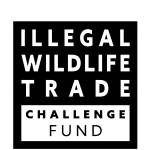
 Back
Back